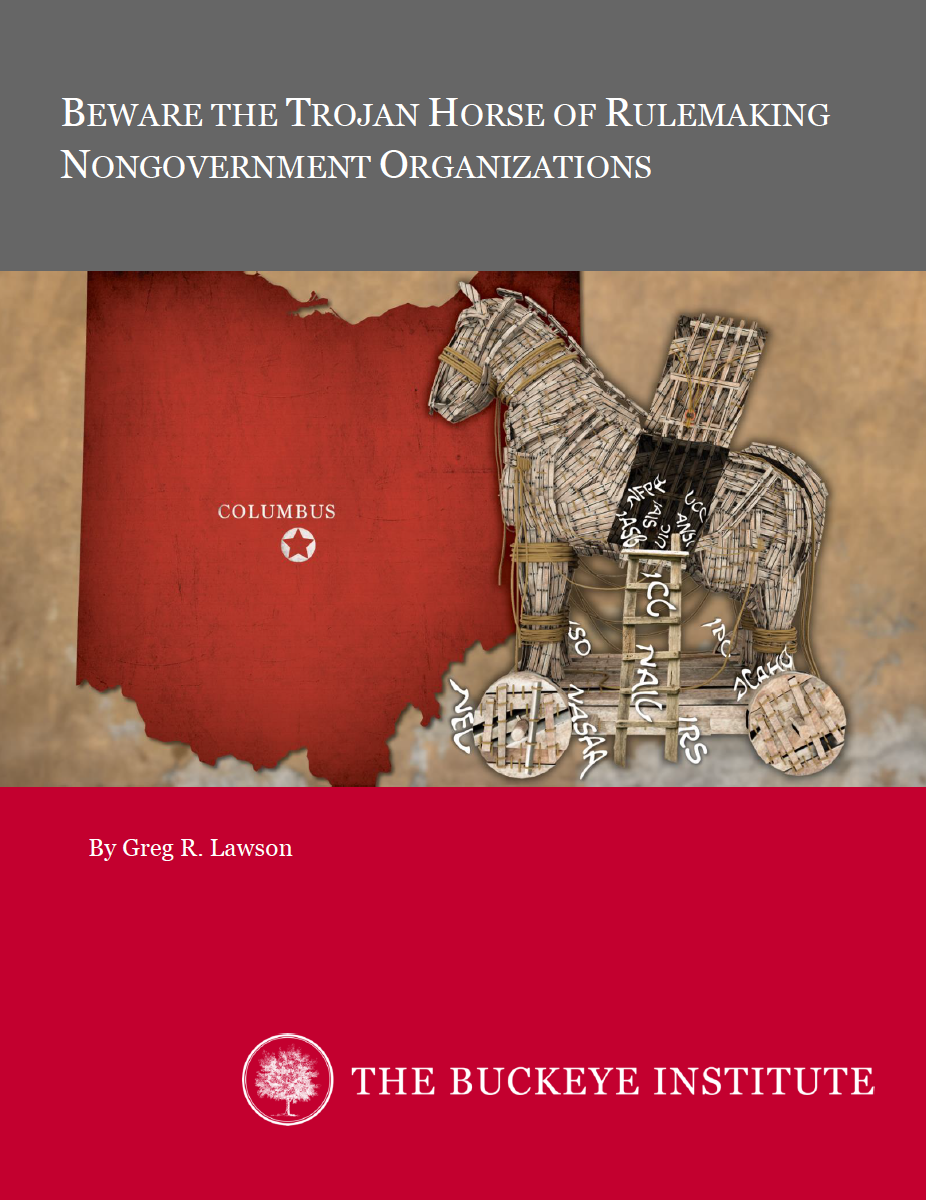In New Report, The Buckeye Institute Warns of Regulatory Trojan Horses
Dec 19, 2024Columbus, OH – In a new policy report, Beware the Trojan Horse of Rulemaking Nongovernment Organizations, The Buckeye Institute outlines the history of national and international nongovernmental organizations (NGO), which present a unique regulatory threat disguised as an innocuous Trojan gift horse.
“Well-meaning nongovernmental organizations often provide advice and pre-packaged uniform rules ready for policymakers to adopt,” said Greg R. Lawson, research fellow at The Buckeye Institute. “But NGOs operate opaquely, with little public scrutiny, and their seemingly benign proposals can be a Trojan Horse leading to needless government regulations. Regulators and elected representatives should be wary of NGOs bearing gifts.”
In the report, The Buckeye Institute offers commonsense reforms that lawmakers can adopt to protect Ohioans from regulations designed to benefit special interests:
- State Government Regulator Transparency: Require state agency regulators to submit annual reports to the appropriate legislative committee on NGO funding received by regulators and actions taken on relevant NGO committees on which they serve. Ensure state sunshine laws include all communications between state regulators and NGO staff.
- Ensure NGOs Maintain Transparency: NGOs should issue publicly available annual reports, and state regulators should be prohibited from joining any NGO that does not meet this level of transparency.
- Enhanced Scrutiny of NGO-Inspired Model Regulations: Elected officials should always retain oversight of the rulemaking process and never allow “automatic adoption” of NGO-drafted rules.
- State-Specific Modification of NGO Model Regulations: State policymakers must retain the ability to modify any broad-based and nationally focused NGO-sponsored proposals.
- Expand Public Input: To balance national industry perspectives, state policymakers should use advisory committees to solicit more comprehensive input from additional stakeholders, including consumer advocacy groups, academic experts, and small businesses, when agencies or legislatures consider any rule tied to an NGO.
# # #

